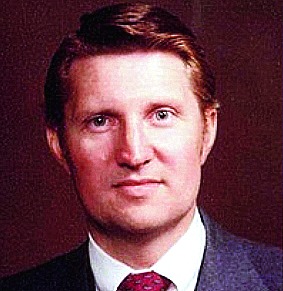
BACK TO THE SUMMIT: HOW ONE MAN DEFIED DEATH & PARALYSIS TO AGAIN LEAD A FULL LIFE OF SERVICE TO OTHERS By Omer Rains, Samakaler Jiyonkathi, Rs 500
In an autobiography an author not only writes about his life experiences but also attempts to write one's self. The author lends meaning and significance to the haphazard, and often cruel, vagaries of life. Hence, an autobiography is always more than the facts, experiences and adventures it narrates. It is a performance, the primary goal of which is to confer the impression of meaning upon life. This desire to look for a meaning in the meaningless is what makes autobiographies inspirational.
Senator Omer L. Rains's autobiography, Back to the Summit, has rightly been subtitled, "how one man defied death and paralysis to again lead a full life of service to others". Rains (picture) was born in 1941 in Barnett, a small town in Missouri. He grew up under the care of his grandfather and mother. His father being part of a professional baseball team was usually on the road. He spent most of his childhood in Ventura, a town in California. At the age of 15 he left home to live on his own. Working three jobs a day throughout college, he finally got a degree in law from the University of California, Berkeley. He rose from the position of a lawyer to become a member of the California state Senate for three terms. During his time as a legislator he was involved with major reforms, most of which concerned environmental issues and the rights of women. Rains continued to be engaged in public service even after his career as a senator ended. He worked with several non-governmental organizations, the most important one being the Rural Education And Development, with centres in Nepal and India. The first of such centres, the Oceanic Library, is in Ullon, a village in West Bengal.
Rains has been a traveller, an athlete and an adventurer. A keen outdoorsman, he enjoyed mountaineering, bicycling and has even tried wing-walking. The book details his many travels and adventures, from attempting to climb the Everest to river rafting in the jungles of Costa Rica. Rains's career and activities take up most of the book, little emphasis has been given to his family life. The author, however, does devote a few chapters to his two marriages, both of which ended in divorce.
The primary focus of the book is Rains's paralysis as a result of brain aneurysm and stroke, and his recovery from it. Medics had declared that he would never walk again. The metaphor of recovery has been used repeatedly to read his life.
Rains's life is a classic tale of rags to riches, which is characteristic of the American Dream. His style is frank, and imbued with a sense of innocence, optimism and righteousness. The American literary critic, Leslie Fiedler, had once said that the American writer lives on the "last horizon of an endlessly retreating vision of innocence... in a society in which since the decline of Puritanism, optimism has become the chief effective religion". Rains's writing reflects his boundless energy and endless optimism. His willingness to fight for his beliefs and his desire to stay off the beaten track reveal a frontier spirit akin to that of early American settlers. This characteristic, which could often slip into rebelliousness and obstinacy, is kept in check by his sense of morality.
America, for Rains, is a place where one has the freedom to write one's story. Of the many incidents mentioned in the book, there is one that would perhaps help the reader understand the author's desire to write an autobiography. In the August 15, 1987 issue of the Los Angeles Times, there was a report titled, 'Ex-Legislator Rains Adds 'Senator' to Name'. Thus, Omer L. Rains became Senator Omer L. Rains. This change of name shows his fascination - which in some ways seems all too American - with improvement and growth of the self. This fascination gets reflected in his autobiography, with its chronological narration of events and his emphasis on the importance of crises for growth. In that sense this book imitates a larger trend within the genre of self-help literature that tries to help the reader overcome crises, whether real or imagined. It is also a sense of crisis that seems to characterize post-WWII America, whether it was the Cold War, the War on Terror, or the recent presidential election.
Rains is a classic American, a self-made man in the mould of people like Abraham Lincoln, J.D. Rockefeller and Jack Kerouac, who are unafraid of pursuing truth and success. It is perhaps men like him, many of whose stories will remain forever untold, who had made America great once upon a time. Fiedler had once written that "to be an American is precisely to imagine a destiny rather than to inherit one; since we have always been... inhabitants of myth rather than history." Back to the Summit is neither a literary masterpiece nor a memoir full of salacious political and celebrity gossip. It is rather a simple and inspiring book, an honest attempt to imagine one's own destiny and thus another variation of the myth called the American Dream.










